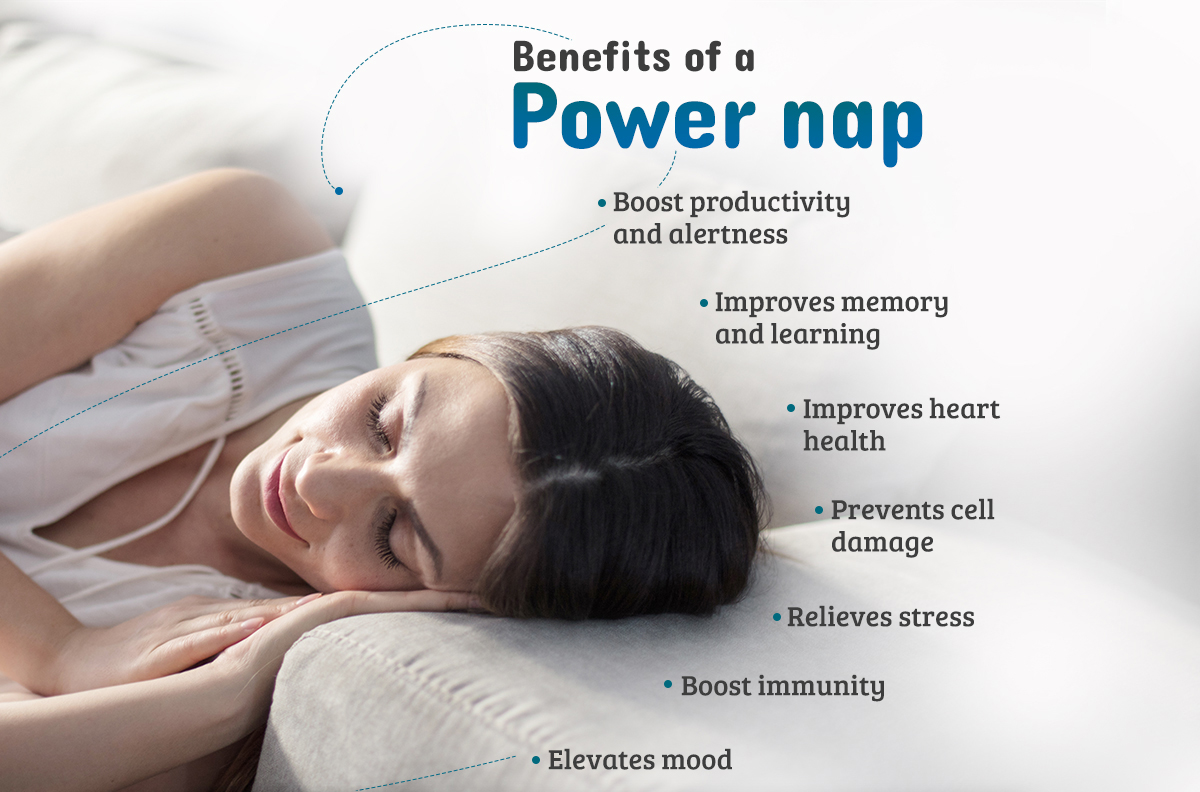The Benefits of Power Naps
When it comes to boosting productivity and improving overall well-being, power naps have gained significant popularity. In this article, we will explore the numerous benefits of incorporating power naps into your daily routine.
Increased Alertness and Focus
Power naps, typically lasting between 10 to 20 minutes, can provide a quick recharge to your body and mind. Research has shown that these short naps can effectively combat drowsiness and enhance alertness, allowing you to stay focused and perform better throughout the day.
Enhanced Cognitive Function
Studies have indicated that power naps can significantly improve cognitive function, including memory, creativity, and problem-solving skills. By giving your brain a brief rest, power naps facilitate information processing and consolidation, leading to enhanced mental clarity and improved overall cognitive performance.
Stress Reduction
In today’s fast-paced world, stress has become a common companion for many individuals. Power naps offer a simple yet effective way to combat stress and promote relaxation. By taking a short break and allowing your body to relax, you can reduce the levels of stress hormones, such as cortisol, and experience a greater sense of calm and well-being.
Increased Productivity
Contrary to popular belief, power naps can boost productivity. Taking a short nap during the day can help prevent the onset of fatigue, which is often a major productivity killer. By recharging your energy levels, power naps enable you to maintain a high level of productivity and accomplish tasks more efficiently.
Improved Mood and Emotional Well-being
Power naps have been found to have a positive impact on mood and emotional well-being. When you are well-rested, you are more likely to experience positive emotions and have greater emotional resilience. Power naps can alleviate feelings of irritability, frustration, and anxiety, leaving you feeling refreshed and rejuvenated.
Boosted Physical Health
Power naps not only benefit your mental well-being but also contribute to your physical health. Research has shown that regular napping can help lower blood pressure, reduce the risk of heart disease, and improve immune function. By prioritizing power naps, you can enhance your overall health and well-being.
Optimizing Your Power Nap Routine
To make the most out of your power naps, it is essential to follow a few key guidelines:
Keep your naps short: Aim for a duration of 10 to 20 minutes to avoid entering deep sleep stages, which can lead to grogginess upon waking.
Find a quiet and comfortable environment: Create a sleep-friendly space that is free from distractions and noise to facilitate relaxation.
Time your naps strategically: Schedule your power naps during the mid-afternoon slump or whenever you feel a dip in energy levels.
Avoid caffeine intake: Refrain from consuming caffeine close to your nap time, as it can interfere with falling asleep quickly.

By incorporating power naps into your daily routine, you can reap the numerous benefits they offer. From increased alertness and focus to improved cognitive function and overall well-being, power naps are a simple yet powerful tool for enhancing productivity and maintaining a healthy lifestyle.
FAQs – Benefits of Power Naps
1. What is a power nap?
A power nap is a short sleep session, typically lasting between 10 to 20 minutes, taken during the day to boost energy and improve productivity.
2. How long should a power nap be?
An ideal power nap should last around 10 to 20 minutes to avoid entering deep sleep stages and waking up feeling groggy.
3. What are the benefits of power naps?
Power naps can provide numerous benefits, such as increased alertness, improved mood, enhanced memory and learning, reduced fatigue, and increased productivity.
4. When is the best time to take a power nap?
The best time to take a power nap is usually in the afternoon, between 1 pm and 3 pm when many people experience a natural dip in energy levels.
5. How do power naps boost alertness?
Power naps help boost alertness by reducing sleepiness, increasing brain activity, and improving cognitive function, allowing you to feel more awake and focused.
6. Can power naps improve memory?
Yes, power naps have been shown to improve memory consolidation, helping to enhance learning and retention of information.
7. Do power naps affect nighttime sleep?
If taken within the recommended duration, power naps should not negatively affect nighttime sleep. However, longer naps or those taken too close to bedtime may disrupt sleep patterns.
8. Are power naps suitable for everyone?
Power naps are generally suitable for most people, but individuals with certain sleep disorders or medical conditions should consult their healthcare provider before incorporating power naps into their routine.
9. How often can I take power naps?
You can take power naps whenever you feel the need for an energy boost or increased alertness. However, it is recommended to limit them to one or two a day to avoid interfering with nighttime sleep.
10. Can power naps replace a full night’s sleep?
No, power naps cannot replace a full night’s sleep. While they can provide temporary benefits, they should not be used as a substitute for getting adequate sleep during the night.




